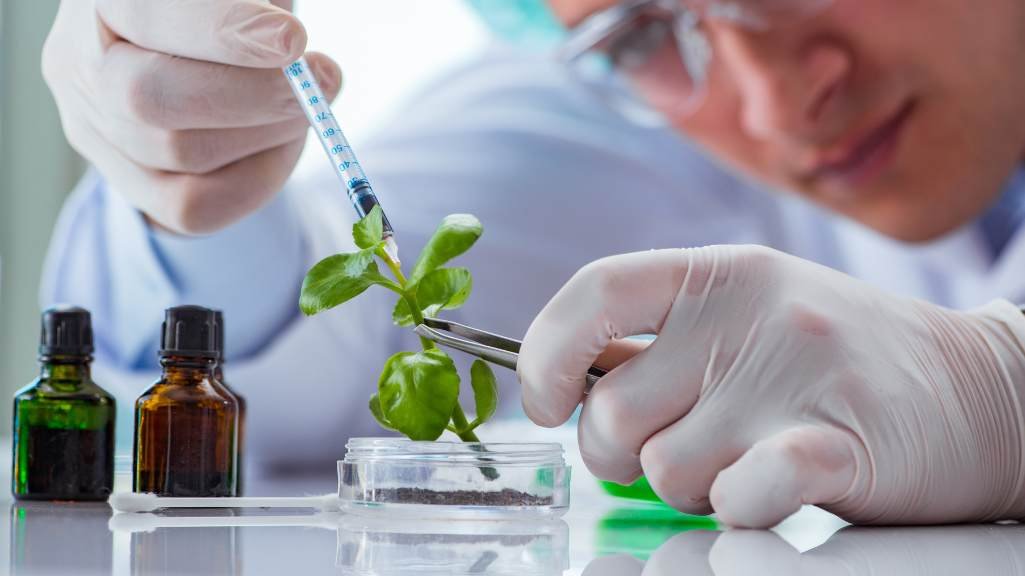Biotechnology and the Future of Medicine: Advancements and Ethical Concerns
Poonam Junjunwala
. 2 min read
Biotechnology has revolutionized the field of medicine, offering unprecedented possibilities to diagnose, treat, and prevent diseases. From gene editing to personalized medicine, the advancements in biotechnology are transforming healthcare and holding the potential to change the course of human health. Additionally, with the integration of online chat in telemedicine and medical platforms, patients can now access expert advice and consultations from the comfort of their homes, further enhancing the reach and efficiency of biotechnological solutions. This article delves into the exciting advancements in biotechnology and the ethical dilemmas they pose, exploring the delicate balance between progress and responsibility in the future of medicine.

Precision Medicine: Unlocking Personalized Treatments
Precision medicine represents a significant stride forward in healthcare, tailoring medical decisions and treatments to an individual's unique genetic makeup, lifestyle, and environment. The integration of genomic data allows for early disease detection and the identification of specific therapies that are most likely to be effective for a patient. We'll explore the success stories of precision medicine, such as targeted cancer therapies, and how it is changing the traditional one-size-fits-all approach to treatment.
Gene Editing: Promise and Peril
The development of powerful gene-editing tools like CRISPR/Cas9 has opened the door to revolutionary medical interventions. While these technologies hold immense potential to correct genetic defects and eradicate hereditary diseases, they also raise serious ethical concerns. We will examine the current state of gene editing technology, its successes in preclinical studies, and the ethical considerations surrounding germline editing, designer babies, and the unintended consequences of genetic modifications.
Organ Transplantation and Xenotransplantation
The shortage of donor organs has long been a significant challenge in transplantation medicine. Biotechnology offers potential solutions through advances in tissue engineering and xenotransplantation – the transplantation of organs from one species to another. We will explore how biotechnology is paving the way for creating organs in the lab and the ethical considerations associated with using animal organs for human transplantation.
Artificial Intelligence in Healthcare
The integration of artificial intelligence (AI) in medicine has transformed the way healthcare professionals diagnose and treat patients. AI-powered algorithms analyze vast amounts of medical data, aiding in accurate diagnoses, predicting disease outcomes, and suggesting personalized treatment plans. As we delve into the potential of AI in revolutionizing healthcare, we will also address concerns regarding data privacy, algorithm bias, and the delegation of decision-making to machines.
Bioethics and Regulation: Striking the Right Balance
As biotechnology advances, so does the need for robust ethical frameworks and regulations to ensure responsible and equitable use. We will discuss the role of bioethics in guiding the development and application of biotechnological innovations, and the challenges policymakers face in maintaining a balance between scientific progress and the protection of individual rights and societal values.
Conclusion
Biotechnology's rapid progress has opened up remarkable possibilities for the future of medicine, promising cures and treatments that were once mere dreams. However, this scientific revolution also demands a careful examination of the ethical implications associated with its applications. It is essential for researchers, policymakers, and society as a whole to engage in thoughtful discussions to ensure that biotechnological advancements are employed responsibly and ethically, maximizing benefits while minimizing potential harm. Only through a thoughtful and collaborative approach can we fully harness the power of biotechnology for the betterment of human health and well-being in the years to come.
More Stories from
The Importance of the "Three Rs": Reduce, Reuse, Recycle
This article highlights the significance of the "Three Rs" - Reduce, Reuse, Recycle - in promoting sustainable practices and protecting the environment.
The Importance of Ecosystems: Understanding and Preserving Earth's Natural Balance
This article explores the significance of ecosystems, their components, and the reasons behind preserving them.
Unveiling India's Volcanic Secrets: A Geological Overview
Explore India's unique volcanic history and the enduring forces of nature that continue to captivate scientists and adventurers alike.
Zero-Waste Living: Practical Tips for Reducing Environmental Impact
Discover the power of zero-waste living as this article offers practical tips and actionable advice for reducing your environmental impact.
Eco-Friendly Practices: How Individuals and Businesses Can Make a Difference
Discover the Power of Eco-Friendly Practices: Learn how individuals and businesses can contribute to a greener world by adopting sustainable measures.










.png?width=40&aspect_ratio=1:1)


.png?width=40&aspect_ratio=1:1)